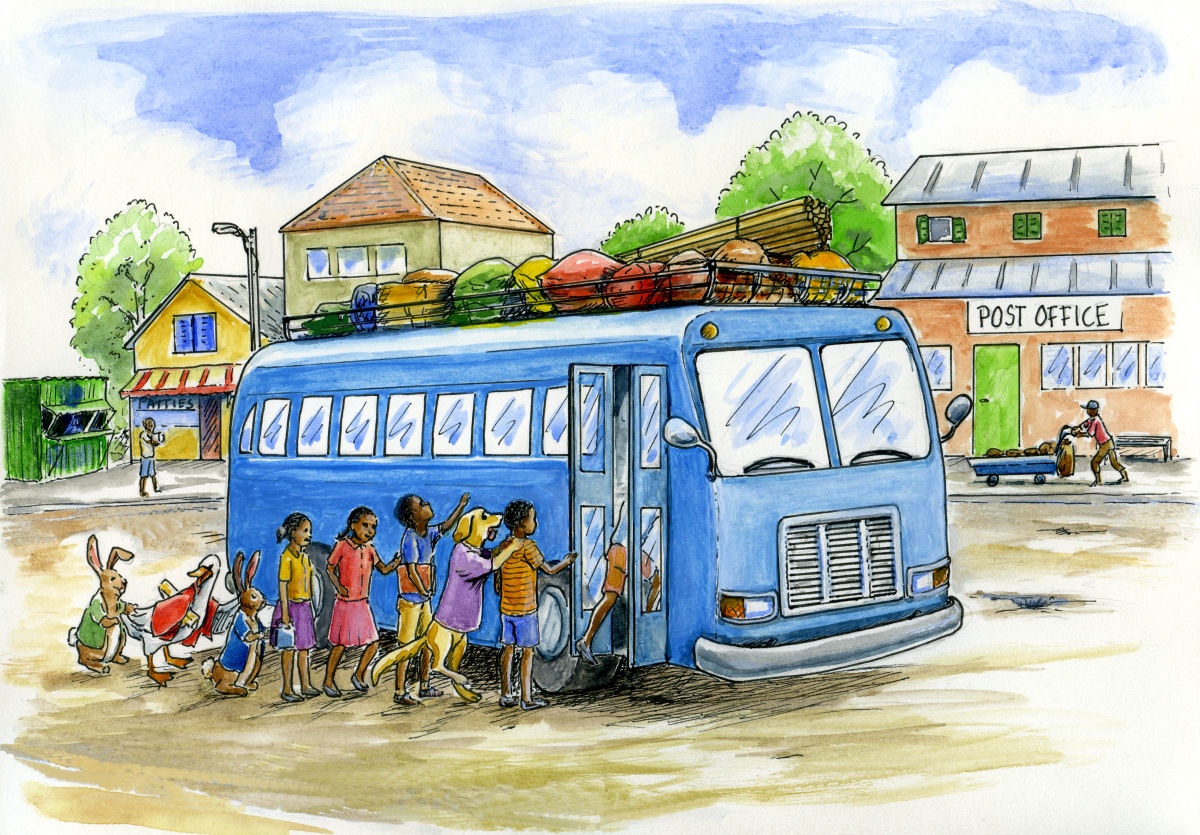Juleus Ghunta – Writer and ACEs Awareness Advocate
1) When, how long and where were you in Japan?
I lived in Yonago, Tottori Prefecture, from July 2014 to August 2017.
2) How was your time in Japan? What were some highlights/things you wish you had done differently?
My first year was very challenging, particularly because I was quite ill. By the end of year two my health had improved significantly. I partied nonstop after that.
OK, I didn’t party much, but I had regular rendezvous with some remarkable people, including Watanabe Kane – an eighty+ year old poet – and his irreverent wife. They had a cottage in Mount Daisen, where I spent many holidays discussing Japan-China relations, reciting poetry, and flirting with their female guests. It was the best of times.
I am grateful to them, to the teachers and doctors who helped me to get better. A few months ago I sent Mr Watanabe a copy of my picture book, Tata and the Big Bad Bull. The first draft of Tata was written in his home in Yonago City. I hope to visit them soon.
3) What was it like for you when you first returned to Jamaica?
I moved from Japan to the UK, where I lived for one and a half years. It was hard to readjust when I finally returned to Jamaica. The prices of Tastee’s patties had skyrocketed. I was shocked. I couldn’t afford anything. I still can’t afford anything.
4) What motivated you to start writing?
I started writing for catharsis. I don’t care how much shade critics throw at people who claim this. I’ve claimed it – screw them.
5) Give us a synopsis of your books?
My first picture book, Tata and the Big Bad Bull, was published by CaribbeanReads Press in 2018. The book is a fast–paced narrative poem about a face–off between an angry bull and Tata, a determined boy. Tata is single-minded in his desire to go to school, but his grandmother is too poor to pay for the school bus and the route on foot takes him through a pasture guarded by a fierce bull. Tata’s pursuit of his education turns into an adventure involving other members of his anthropomorphic community as he searches for ways to circumvent the bull and his anger. The book is loosely based on my childhood experiences.
My second picture book, Rohan Bullkin and the Shadows, is forthcoming from CaribbeanReads. This story is about a boy named Rohan who faces great adversities at home and in school. Rohan makes a connection with a magical book and through this and with the support of a teacher, he finds himself able to confront the shadows that cause him to struggle with reading and to live with anxiety and low self-esteem. The book includes an appendix which provides a brief overview of adverse childhood experiences (ACEs), as well as a note regarding how reading helped me to understand and overcome my ACEs. Rohan Bullkin and the Shadows is inspired, in part, by a Marcus Garvey’s essay entitled How to Read and aims to encourage children to read and also to open up conversations about childhood adversity and abuse.
I recently co-edited volume 5 (pts. 1 and 2) of Interviewing the Caribbean Journal (UWI Press, 2019 and 2020). Titled Caribbean Childhood: Traumas + Triumphs, the volume is a collection of essays, illustrations, stories, poems, and interviews on Caribbean children’s and young adult literature, and childhood adversity in the region. It features works by 45 established and new Caribbean writers.
My poems, interviews, and essays have appeared in thirty+ journals including Eunoia Review, Anomaly, Easy Street Journal, and Pree.
6) Has your experience in Japan contributed to your content in any way?
Yes. I analysed some of my experiences in Japan in my academic work in the UK. Here’s a poem about how I coped while in MRI machines in Japanese hospitals. Here is my response to members of Tottori Toastmaster’s Club who said I was “…intelligent for a Jamaican.”
7) What advice would you give to someone who is interested in going to Japan on the JET programme?
Reread your essay. If you don’t succeed at your first attempt, apply again.
8) What advice would you give to someone who is about to return or who has recently returned to Jamaica from Japan?
If you are in Japan, stay there. Please. If you are about to return, when you get here, make sure you self-isolate for fourteen days. Don’t leave your house unless you’re starving. Bring me some mini staplers from Daiso.
9) Would you return to live in Japan? Why or why not?
Yes, if I get a lucrative contract to star in the Japanese modelling industry.
About Interviewee
Juleus Ghunta is a Jamaican writer, Chevening Scholar, and an Advocate in Jamaica's Adverse Childhood Experience (ACEs) movement. He holds a BA in Media from UWI, Mona, and an MA in Peace Studies from the University of Bradford, UK. His MA dissertation examined the causes and consequences of ACEs in Jamaica. His poems, interviews, and essays on ACEs have appeared in thirty+ journals including Spillway, Anomaly, Pittsburgh Poetry Review, and In This Breadfruit Kingdom. He was awarded the Catherine James Poetry Prize by Interviewing the Caribbean (IC) in 2017, and is the recipient of Jamaica’s Prime Minister’s Youth Award for Excellence, and the University of Bradford’s Social Ambassador Prize. His picture book, Tata and the Big Bad Bull, was published by CaribbeanReads in May 2018, and was featured on BBC in 2019. He is the co-editor, with Professor Opal Palmer Adisa, of the December 2019 and March 2020 issues of IC Journal (UWI Press), which are focused on children’s literature and ACEs in the Caribbean.











Comments
Post a Comment